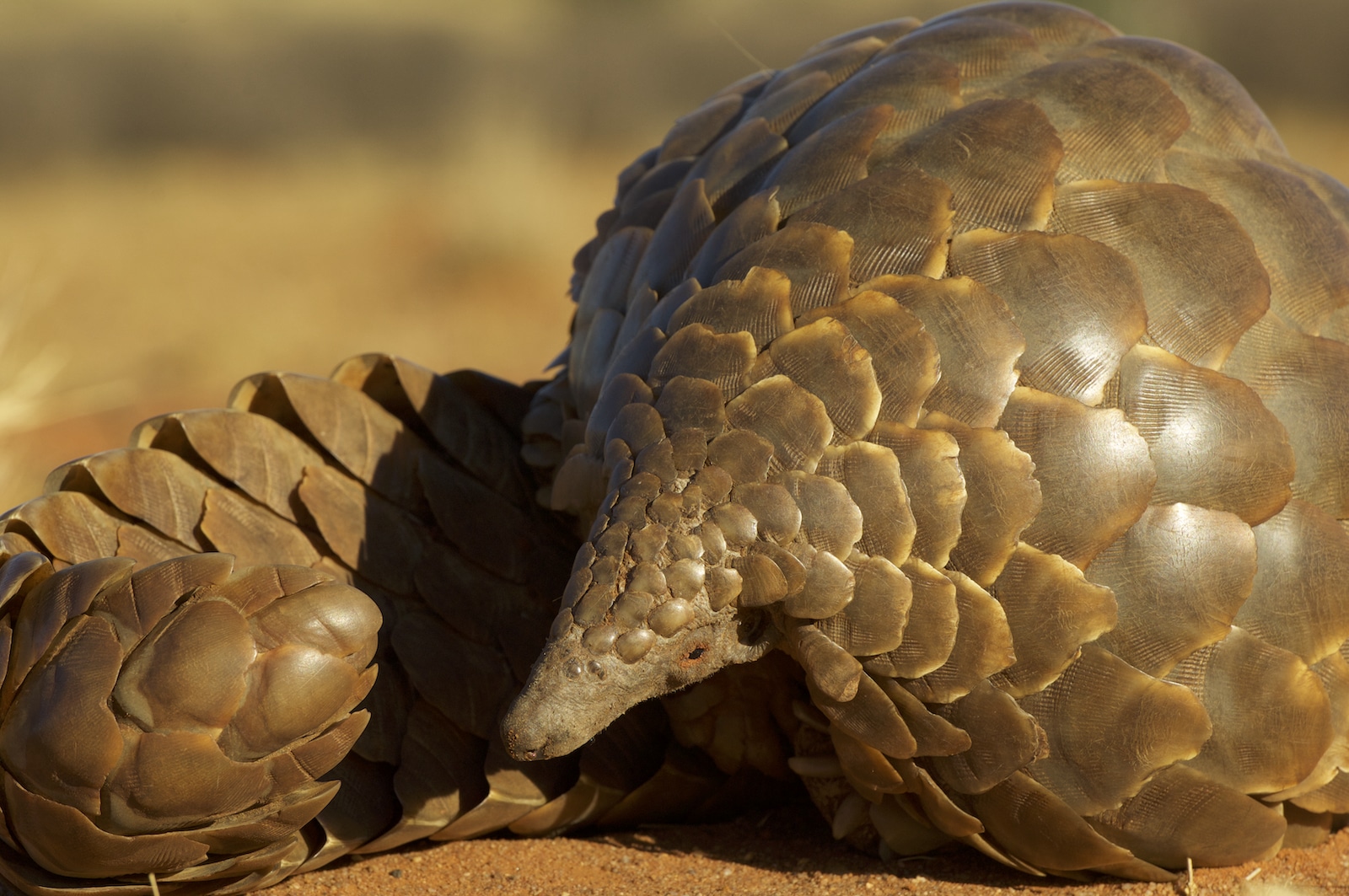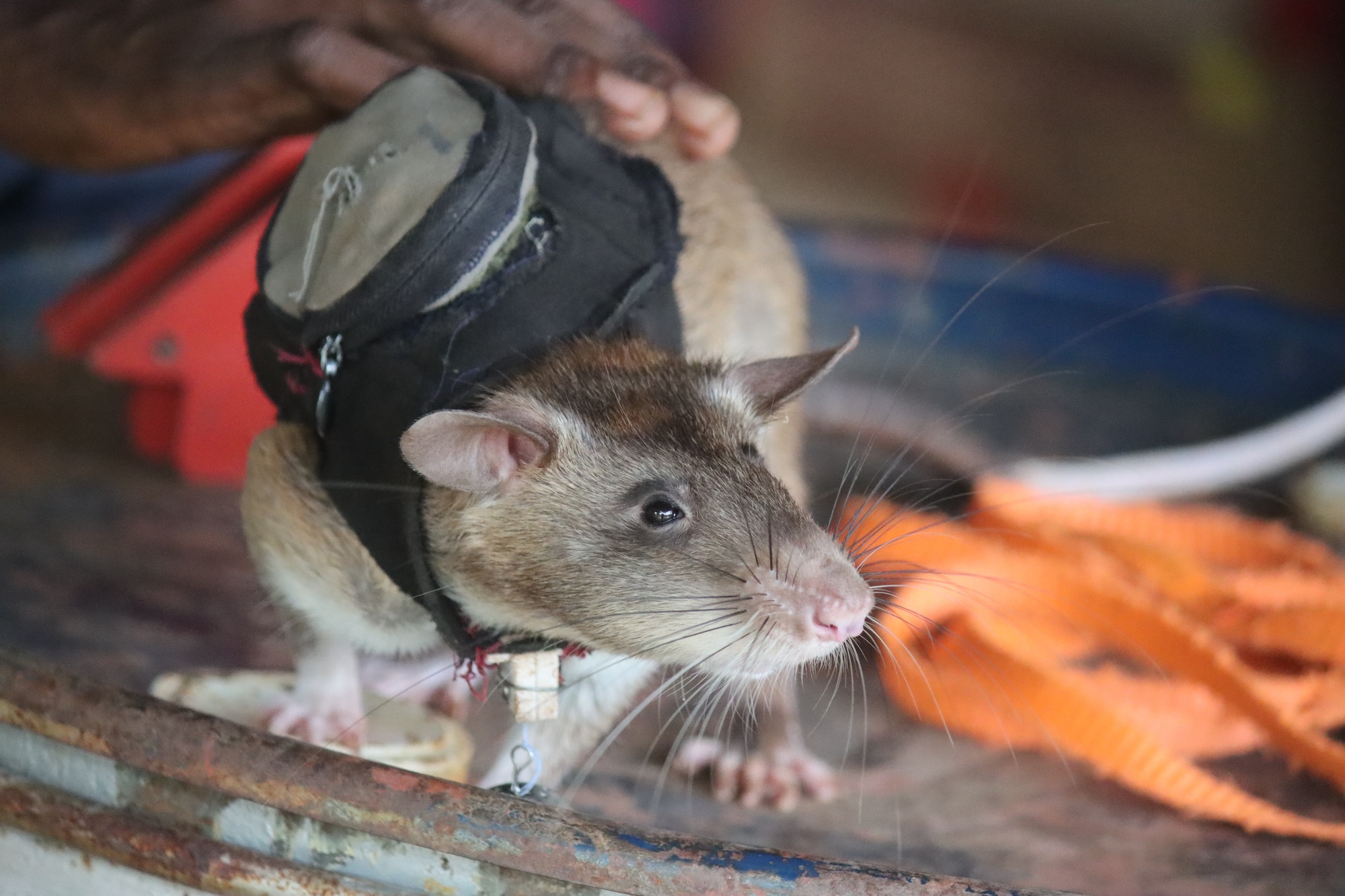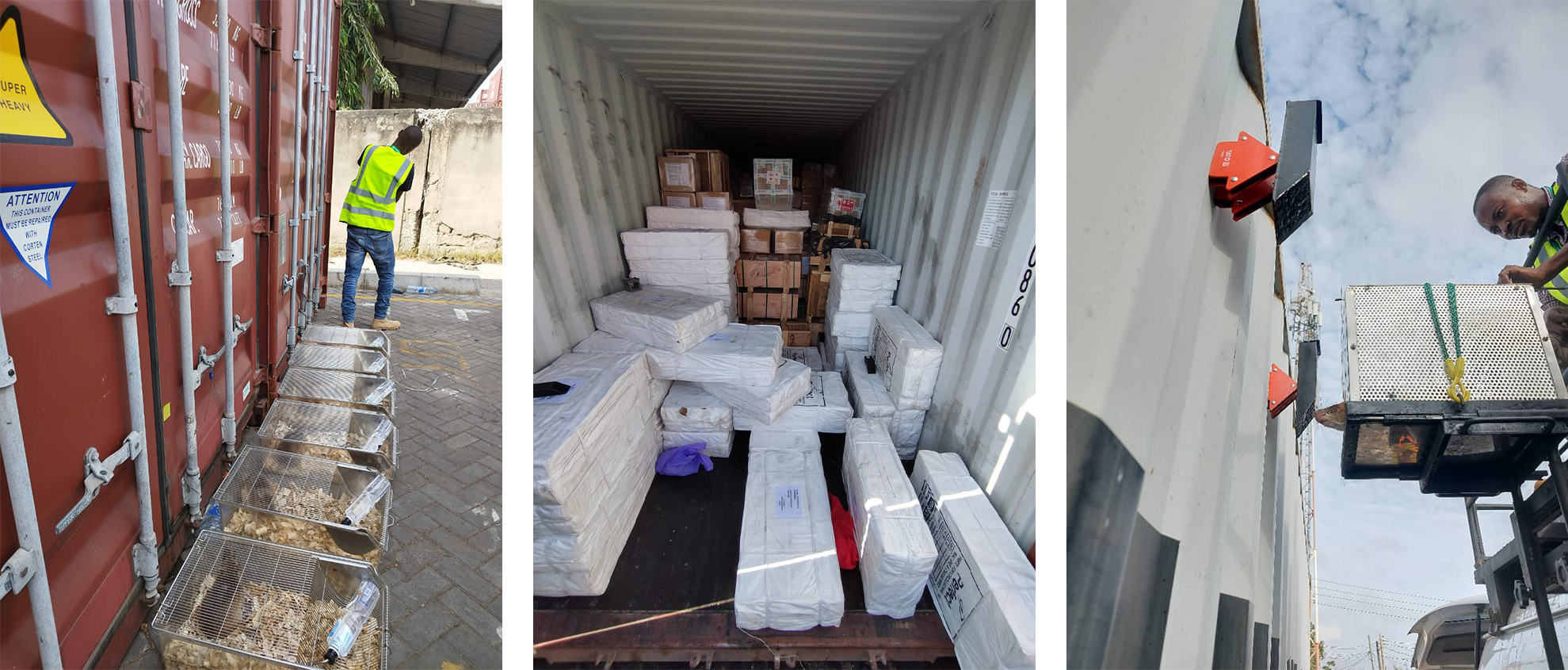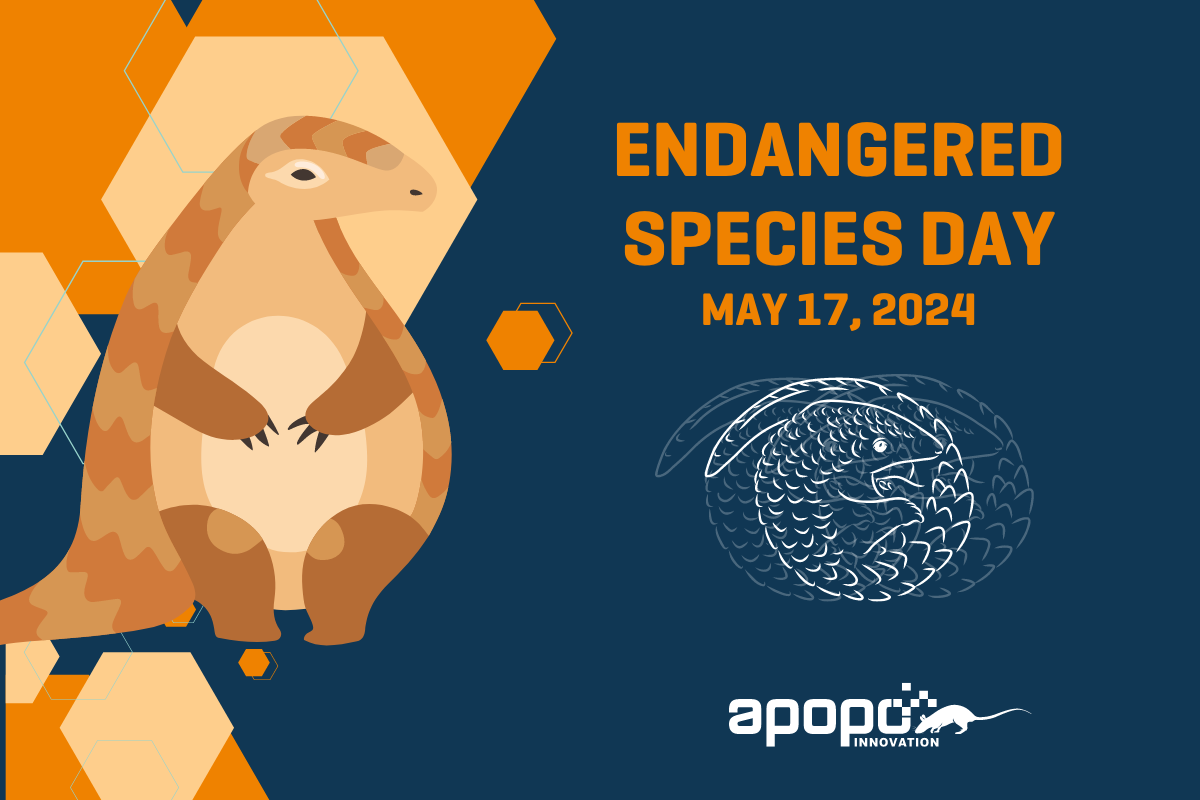May 17 is Endangered Species Day, an opportunity for us to reflect on our responsibility towards the world’s most vulnerable species. For this year, APOPO is drawing attention to its ongoing efforts in conservation through a unique method. We are training African giant pouched rats (Cricetomys ansorgei), affectionately called HeroRATs, to detect illegally trafficked wildlife products such as pangolin scales. Our rats’ incredible abilities are a promising solution to combat the illegal wildlife trade at major transit points like seaports and airports, and once deployed may help to address a critical conservation challenge.
The Challenge of Wildlife Trafficking

The illegal wildlife trade threatens endangered species worldwide and is closely linked to other serious crimes like drug trafficking and human trafficking. It harms specific animal populations, damages global biodiversity, robs communities of their natural heritage and weakens regional economies.
However, intercepting illegally trafficked wildlife products is challenging. Smugglers hide their illegal goods within legal shipments or use fake documents to avoid detection. Traditional methods like manual inspections and checking paperwork at ports and borders often miss these hidden items. Also, the massive amount of international trade and the lack of advanced technology at many border points make it hard for customs and wildlife officers to spot and stop these illegal activities effectively.
APOPO’s Response: The Power of Scent Detection

The Wildlife Detection project focuses on using HeroRATs, trained by APOPO to detect trafficked wildlife products at major transit points like seaports. The rats are trained to ‘sniff out’ the unique scent of each animal product and alert their handlers to its presence in a specific location.
Advantages of Using HeroRATs to Detect Wildlife Products
- High Sensitivity and Speed: HeroRATs have a keen sense of smell that lets them detect tiny amounts of illegal wildlife products hidden amongst masking agents. They can quickly check large amounts of cargo without opening containers, which speeds up inspections.
- Cost-Effectiveness: It is more affordable to maintain and use HeroRATs than other technologies like scanning machines. They need minimal equipment and are inexpensive to train and care for.
- Non-Invasive and Safe: Using HeroRATs doesn’t disturb the cargo to the same extent as conventional methods, making it a less disruptive process. Their small size lets them easily move into tight spaces and identify the cargo that may contain wildlife products without having to unpack the entire shipment.
- Versatility and Adaptability: HeroRATs can be trained to sniff out a range of different scents, which makes them flexible enough to adapt to new or changing types of wildlife trafficking.
The 2023 Seaport Trial

An operational trial at the Dar es Salaam seaport in 2023 was a pivotal advancement in APOPO’s research. Our trained rats demonstrated a high accuracy in detecting concealed wildlife products, validating their potential to contribute to future conservation efforts. These trials involved multiple innovative search techniques, allowing the rats to inspect shipping containers and other key areas efficiently and with minimal operational disruption.
Key Achievements:
- Innovative Search Techniques: The rats were trained to detect targets from mock vents and inside shipping containers, which helped minimize costs and operational disruptions.
- High Detection Accuracy: Despite low expectations of naturally encountering trafficked items, the rats successfully identified a high percentage of planted targets under double-blind conditions.
- Enhanced Training Protocols: The trial validated the training protocols developed by APOPO, showing that rats can be trained to navigate and search complex environments such as shipping ports, adapting to various search strategies and showing high levels of detection accuracy.
APOPO collaborated with several partners on this initiative and is grateful for their involvement. These partners and donors include the Endangered Wildlife Trust (EWT) of South Africa, the Tanzanian Wildlife Management Authority (TAWA), UNDP-GEF-USAID ‘Reducing Maritime Trafficking of Wildlife between Africa and Asia’ project under the World Bank-led Global Wildlife Program, the German Government (GIZ), and the Sokoine University of Agriculture in Tanzania. This research also collaborates with the Dar es Salaam seaport authorities, including the Joint Port Control Unit (JPCU), the Tanzania Revenue Authority (TRA), and the Tanzania Ports Authority (TPA).
Future Seaport Trials
Building on what we learned in last year’s trial, APOPO is set to start a new seaport trial. This trial will help us test how well they work in new and more challenging environments and demonstrate the effectiveness of the improved training methods and gear.
Looking ahead, APOPO is committed to its pioneering conservation work. We are actively researching and preparing for new challenges that will improve our HeroRATs’ scent detection skills. Such advances could transform how we protect endangered species and fight the illegal wildlife trade in the future.
This Endangered Species Day, we honor the wildlife we strive to save and the creative approaches that support our efforts. APOPO’s work with wildlife detection rats shows our deep commitment to conservation. We encourage everyone worldwide to join and support our cause to protect our most endangered species before it’s too late.
Your support is crucial. Join us in leveraging scent detection to safeguard our precious wildlife.
Your contribution, whether monthly or a one-off gift) is a commitment to a sustainable future for endangered species.



